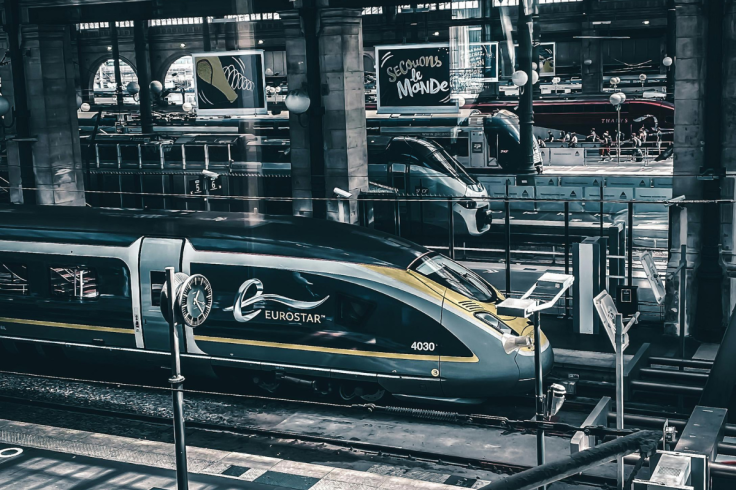What Caused The Eurostar Train Evacuation In London? Stranded Passengers Say They Were 'Boiling Alive'
Recent cable thefts on the high-speed line had already strained services, highlighting vulnerabilities in rail infrastructure.

On 6 July 2025, hundreds of passengers on a Eurostar train from Brussels to London faced a harrowing ordeal: Getting stranded for over five hours in northern France.
The train, departing Brussels at 8:52am, was due at St Pancras International by 9:57am but broke down between Lille and Calais, leaving travellers in sweltering conditions without air conditioning or working toilets.
Social media erupted with complaints of poor communication and discomfort, with some passengers feeling they were 'slowly boiling alive.'
What caused this chaos, and how did Eurostar respond? Let's dive into the incident, public reactions, and its broader implications.
Unravel the Breakdown Cause
The disruption stemmed from an electric failure that halted Eurostar train 9117, leaving it without onboard electricity, per a Eurostar spokesperson.
This failure disabled air conditioning and toilets, turning carriages into stifling, unsanitary spaces. Passengers leaned out of open doors for fresh air, and local emergency services distributed water to alleviate discomfort.
A rescue train arrived around 3pm UK time, but the complex transfer operation, involving SNCF Réseau and local authorities, delayed evacuation until around 3:20pm, extending the ordeal to nearly nine hours for some.
Recent cable thefts on the high-speed line had already strained services, highlighting vulnerabilities in rail infrastructure.
Capture Passenger Outrage
Social media reflected the frustration and desperation onboard. User @valleylily56 reported: 'There was no water, only Kit Kat bar as a meal, overheating, toilets weren't working before ambulances arrived'.
Similarly, @VNews825817 shared: 'Woman tells of "overflowing toilets", staff offering Kit Kats as meals and overheating travellers "stealing water"'.
These posts, while inconclusive, underscore the dire conditions and perceived lack of communication, with passengers waiting hours for updates.
Some, however, found solace in music, playing guitars and singing 'Home' as they disembarked, a brief moment of levity amid the chaos.
Examine Eurostar's Response
Eurostar's handling drew criticism for slow communication and inadequate support.
The company offered a full cash refund or '300 per cent of the ticket value in e-vouchers' to affected passengers, a step beyond standard compensation of 50–75 per cent for delays over two hours.
Unlike airline passengers, rail travellers lack robust compensation rights, with no coverage for consequential losses like missed connections or hotel costs.
Eurostar's history of disruptions, including a 2023 incident where passengers were stranded for nine hours in Kent due to a fallen cable, suggests recurring issues with contingency planning.
The operator apologized, citing the complexity of the rescue operation, but passengers demanded better preparedness.
Demand Better Travel Standards
This Eurostar debacle exposes the fragility of cross-Channel rail travel, costing passengers time and comfort, with some losing £700 ($953) in onward travel plans.
It underscores the need for stronger rail passenger protections, akin to aviation standards, to ensure timely communication and support during disruptions.
As Eurostar plans expansions to Germany and Switzerland by 2030, incidents like this underscore the critical need to enhance infrastructure resilience and prioritise exceptional customer care. Travellers must stay informed, share their experiences, and advocate for accountability to ensure safer, more reliable journeys.
Investment in robust systems and transparent communication is essential for building trust and delivering seamless travel across Europe in the future.
© Copyright IBTimes 2025. All rights reserved.




















